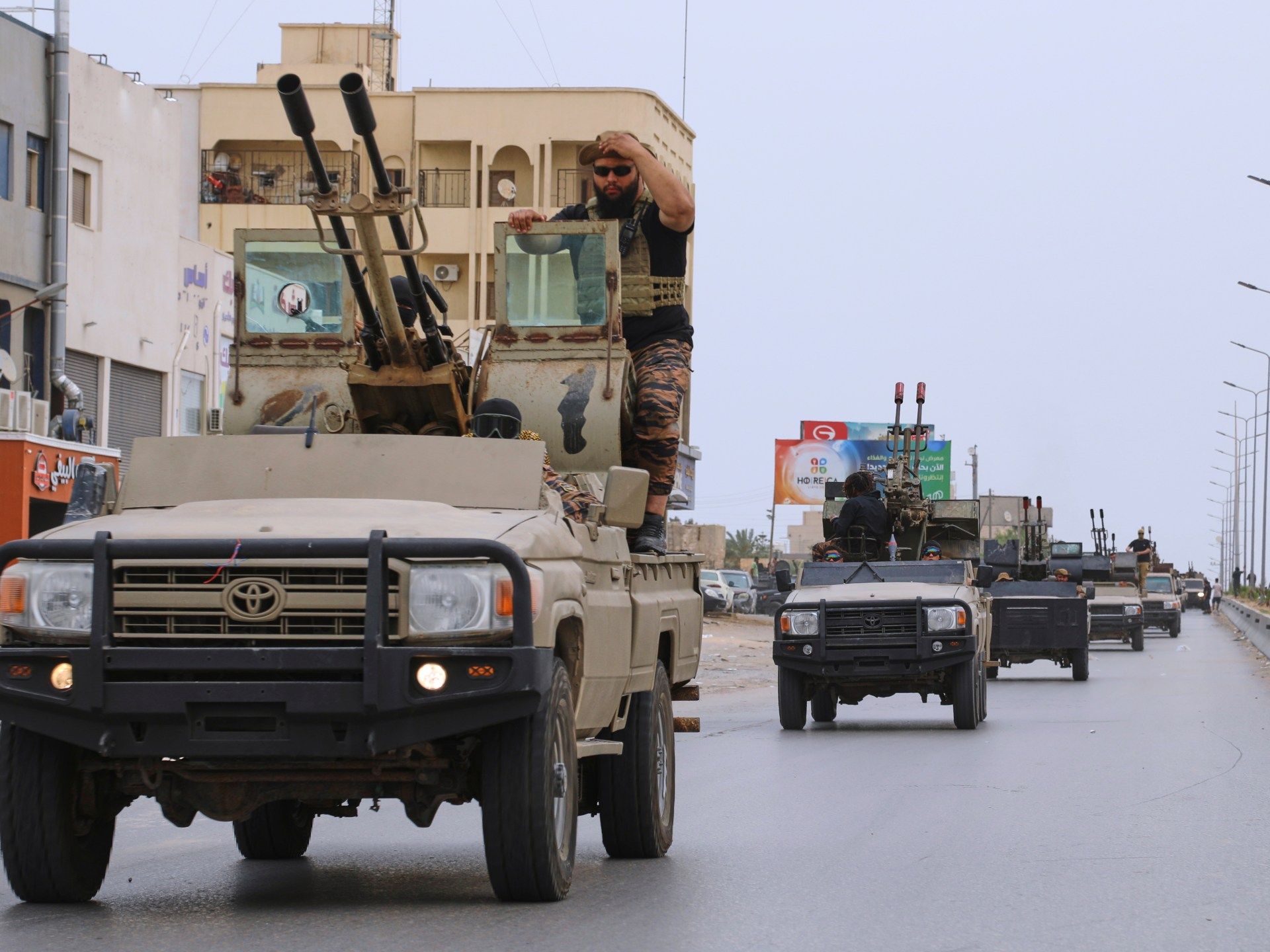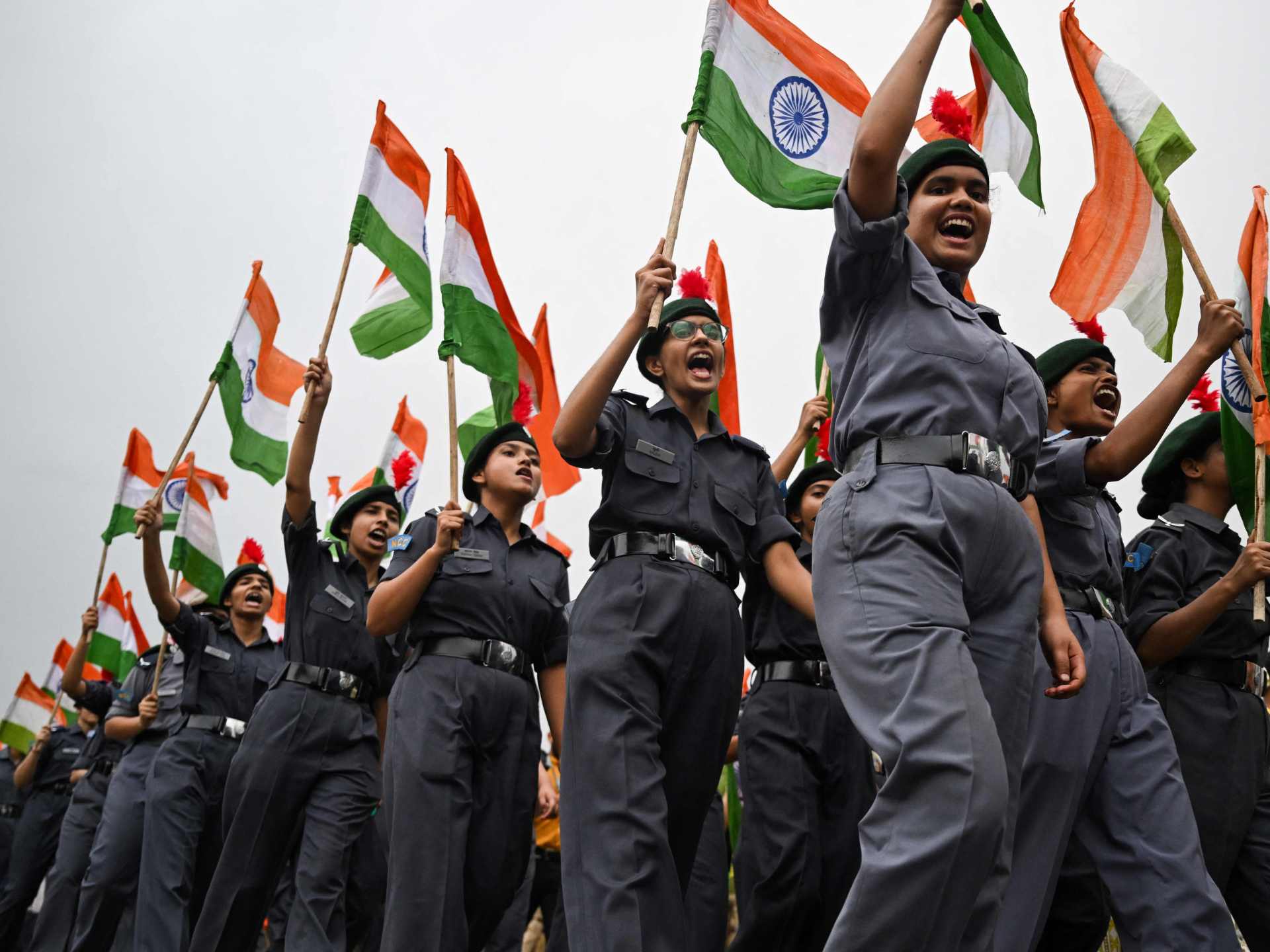UN calls for calm as fighting resumes in Libya’s Tripoli | Conflict News
The United Nations Mission to Libya (UNSMIL) warns that the situation in the country could ‘spiral out of control’.
The United Nations has called for calm as fighting has resumed in Libya’s capital, Tripoli, a day after authorities declared order had been restored.
The UN Mission to Libya (UNSMIL) warned on Wednesday that the situation in the country could “spiral out of control”.
“UNSMIL reiterates its calls for an immediate, unconditional ceasefire in all areas, allowing safe corridors for the evacuation of civilians trapped in intense conflict zones,” the mission wrote on X.
“Attacking and damaging civilian infrastructure, physically harming civilians, and jeopardising the lives and safety of the population may constitute crimes under international law. Those responsible will be held accountable for their actions,” it added.
Clashes erupted between the Rada militia and the 444 Brigade, loyal to Prime Minister Abdulhamid al-Dbeibah, in key areas of Tripoli, including the port, the AFP news agency reported, quoting a security source.
The official called the ongoing fighting “urban warfare” with intermittent clashes in residential areas and the use of light and medium weapons.
The fighting calmed down later on Wednesday after the government announced a truce, Tripoli residents told the Reuters news agency.
“Regular forces, in coordination with the relevant security authorities, have begun taking the necessary measures to ensure calm, including the deployment of neutral units,” the government’s Ministry of Defence said.
Fighting across Tripoli
Clashes broke out on Monday night after reports that Abdelghani al-Kikli, leader of the Support and Stability Apparatus (SSA), a militia that controls the southern district of Abu Salim, was killed.
According to local authorities, at least six people were killed in Monday’s fighting.
While Tuesday morning was calm, the fighting restarted overnight with major battles in the capital.
For residents, the uncertainty brought by the attacks was “terrorising”, a father of three told Reuters from the Dahra area.
“I had my family in one room to avoid random shelling,” he added.
Al-Dbeibah ordered what he called irregular armed groups to be dismantled, including Rada.
With the seizure of the SSA territory by factions allied with al-Dbeibah, including the 444 and 111 brigades, Rada is the last significant faction not allied with the prime minister.
Since the 2011 NATO-backed uprising that toppled longtime leader Muammar Gaddafi, Libya has struggled to recover.
In 2014, the country split between a UN-recognised government in Tripoli, led by al-Dbeibah, and a rival administration in the east dominated by commander Khalifa Haftar and his self-styled Libyan National Army.

